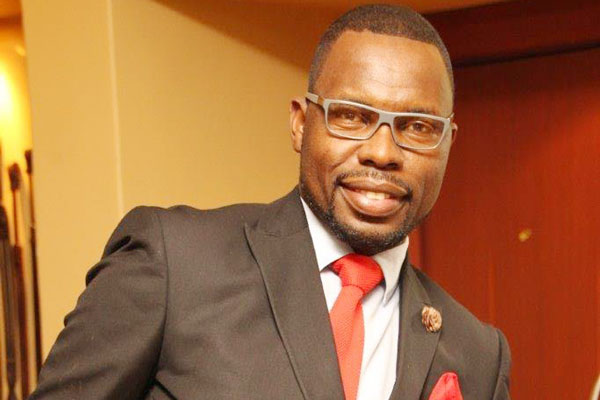
BUSINESS leaders drawn from various key sectors of the economy are optimistic about economic turnaround this year but caution that real progress hinged on the conduct of the forthcoming elections.
BY FIDELITY MHLANGA
Hope for better economic fortunes comes after the country endured years of cash shortages, price hikes and several other economic woes stemming mainly from government’s unbridled runaway expenditure and poor economic and foreign policies.
Confederation of Zimbabwe Industry president Sifelani Jabangwe said there were many indications on the horizon pointing to economic turnaround in 2018.
“There is interest from investors to invest in the country. This year we should expect more investors from Britain and other EU markets. We have engaged some of them across the board and there is an avalanche of interest. Some come from South Africa. They came after the president’s visit to that country last month. They came to have a feel of the environment on the ground. It’s like every day we are having enquiries with companies showing interest to invest,” he said.
“Given the performance of 2017 where we have seen that, yes there were pressing issues about prices, currency unavailability, we still have optimism and the good thing is that we believe those cases are being attended to. We believe the currency issue can be addressed by increasing exports,” Jabangwe said.
According to the CZI boss, the issue of foreign currency will be mitigated through measures taken to shore up cotton exports and cutting the importation of crude oil.
“Now that there is command soya beans being executed this season it, therefore, means that the $240 million which was used to import crude oil per year will now be available for other purposes. The cotton production exports are set to improve as government has provided inputs to cotton farmers. Cotton exports are done in the fourth quarter of the year at a time when the country experiences a dry foreign currency spell. So if the cotton exports grow it means the country will no longer have foreign currency shortages and this will help in oiling the country nostro accounts,” he said.
- Chamisa under fire over US$120K donation
- Mavhunga puts DeMbare into Chibuku quarterfinals
- Pension funds bet on Cabora Bassa oilfields
- Councils defy govt fire tender directive
Keep Reading
Zimbabwe National Chamber of Commerce CEO Christopher Mugaga said the coming elections were a potential threat to economic turnaround in the short-term.
“I think it’s too early to start talking about economic turnaround. But what I can say is that it’s possible. The solid thrust of the new administration is to make sure they are different from the previous one. If you look at elections coming up this year, they are a potential threat to economic turnaround in the short-term. The unfortunate thing is that 2018 is going to be a test of character for this leadership because they have everything to lose if they fail to manage the elections well,” he said.
Mugaga said that he feared inflation which was 2,97 % last year was likely to spiral further because of looming expenditures, chief among them the $132,2 million required for elections.
Last year government announced austerity measures to tame expenditure by cutting travel costs, allowances, staff rationalisation.
“My greatest worry is that inflation will go out of hand. If you look at the US dollar as a currency, it has reached its maturity stage. The only currency which has increased now is the RTGS (pseudo currency) which has grown tremendously over the years. Too much RTGS balances are chasing the few US dollars which is inflationary. Of course, there is a lot of commitment to cut expenditure but with elections coming up it’s going to be difficult,” Mugaga said.
Buy Zimbabwe chief economist Kipson Gundani said the prospects of 2018 largely depended on what government was going to do to reverse the misfortunes that have dogged the economy for the past two decades, adding that holding of elections was going to shape the future of the economy.
“The most important thing is to realise that national prosperity is created and not inherited. The prospects of 2018 largely depend on what we will do to reverse the misfortunes that have characterised our economy for the past two decades. The restoration of confidence and adherence to a comprehensive set of policies and reforms that can be effective in the short-term will be key. The 2018 budget statement and the state of the nation address have already provided impetus and direction towards radical reform. This year being an election year, the conduct of the elections will be key in shaping the 2018 prospects and beyond. So the point is to continue with the spirit of positive reform, sustain it while we address inefficiencies associated with most public utilities, intensify international re-engagement and stay away from populist policies,” he said.
Small to Medium Enterprises Association of Zimbabwe executive director Farai Mutambanengwe said there was indication that the economy will be better this year, especially if there is a free and fair election, and an uncontested result.
‘There is every indication that the economy will be far better in 2018, especially if there is a free and fair election, and an uncontested result. The changes that have already occurred are sufficient in themselves to result in an improvement, if the cash and currency issues are addressed. The new dispensation has also adopted a pragmatic, as opposed to an ideological approach to politics and the economy. The actions of the new faces in high offices are ample demonstration they are willing to walk the talk. Work ethic and culture is being addressed from the top going down, unlike the previous dispensation where patronage was more important than effectiveness, and graft was rewarded instead of being punished,’ he said.











